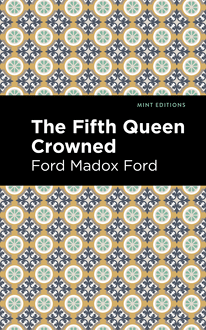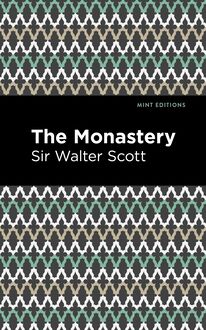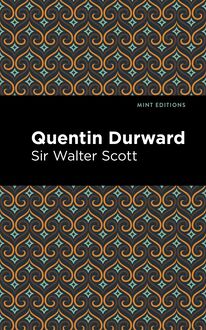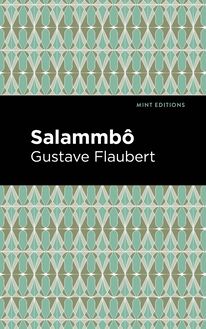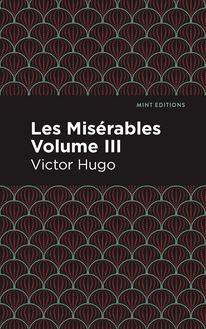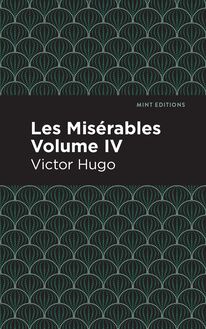-
 Univers
Univers
-
 Ebooks
Ebooks
-
 Livres audio
Livres audio
-
 Presse
Presse
-
 Podcasts
Podcasts
-
 BD
BD
-
 Documents
Documents
-
- Cours
- Révisions
- Ressources pédagogiques
- Sciences de l’éducation
- Manuels scolaires
- Langues
- Travaux de classe
- Annales de BEP
- Etudes supérieures
- Maternelle et primaire
- Fiches de lecture
- Orientation scolaire
- Méthodologie
- Corrigés de devoir
- Annales d’examens et concours
- Annales du bac
- Annales du brevet
- Rapports de stage
La lecture à portée de main
Vous pourrez modifier la taille du texte de cet ouvrage
Découvre YouScribe en t'inscrivant gratuitement
Je m'inscrisDécouvre YouScribe en t'inscrivant gratuitement
Je m'inscrisEn savoir plus
Vous pourrez modifier la taille du texte de cet ouvrage
En savoir plus

Description
The Squatter and the Don (1885) is a novel by Mexican American author María Amparo Ruiz de Burton. The novel, Ruiz de Burton’s second, explores the consequences of the Treaty of Guadalupe Hidalgo for the Californios whose land was taken following the Mexican American War. Central to its focus are the ways in which Californios were forced to provide proof of ownership while squatters, with the support of the US government, settled on their land.
Following the conquest of California, the Alamar family struggles to assimilate into American culture while maintaining their cultural heritage. Faced with immense prejudice, the Alamars, who like many Californios consider themselves to be racially white, embrace the capitalist culture introduced by American settlers and accelerated by the introduction of the railroad. Against this sociopolitical backdrop, the Alamars become increasingly entwined with the Darrells, a settler family, turning a story of political and economic circumstances into tale of romance between Clarence and Mercedes, whose love becomes representative of a new United States. Both personal and political, historical and fictional, The Squatter and the Don is a novel that captures a complex moment in American history without losing sight of the humanity at its heart.
With a beautifully designed cover and professionally typeset manuscript, this edition of María Amparo Ruiz de Burton’s The Squatter and the Don is a classic of Mexican American literature reimagined for modern readers.
Sujets
Informations
| Publié par | Mint Editions |
| Date de parution | 23 février 2021 |
| Nombre de lectures | 0 |
| EAN13 | 9781513276595 |
| Langue | English |
| Poids de l'ouvrage | 2 Mo |
Informations légales : prix de location à la page 0,0500€. Cette information est donnée uniquement à titre indicatif conformément à la législation en vigueur.
Extrait
The Squatter and the Don
María Amparo Ruiz de Burton
The Squatter and the Don was first published in 1885.
This edition published by Mint Editions 2021.
ISBN 9781513271590 | E-ISBN 9781513276595
Published by Mint Editions®
minteditionbooks .com
Publishing Director: Jennifer Newens
Design & Production: Rachel Lopez Metzger
Project Manager: Micaela Clark
Typesetting: Westchester Publishing Services
C ONTENTS I. S QUATTER D ARRELL R EVIEWS THE P AST II. T HE D ON ’ S V IEW OF THE T REATY OF G UADALUPE H IDALGO III. P RE - EMPTING UNDER THE L AW IV. E FFORTS TO R IGHT THE W RONG V. T HE D ON IN H IS B ROAD A CRES VI. N AUGHTY D OG M ILORD AN I MPORTANT F ACTOR VII. F ROM A LAMEDA TO S AN D IEGO VIII. V ICTORIANO AND H IS S ISTER IX. C LARENCE IS THE B EARER OF J OYFUL N EWS X. B UT C LARENCE M UST N OT BE E NCOURAGED XI. G EORGE IS A C HRISTIAN G ENTLEMAN XII. W HY THE A PPEAL WAS N OT D ISMISSED XIII. A T S AN F RANCISCO XIV. O F M ISCELLANEOUS I NCIDENTS XV. J OURNEYING O VERLAND XVI. S PANISH L AND G RANTS V IEWED R ETROSPECTIVELY XVII. D OÑA J OSEFA AT H OME XVIII. A T N EWPORT XIX. I N N EW Y ORK XX. A T THE C APITOL XXI. L OOKING AT THE R ECEDING D OME XXII. P ERPLEXITIES AT A LAMAR XXIII. H OME A GAIN XXIV. T HE B REWERS OF M ISCHIEF XXV. T HE S QUATTER AND THE D ON XXVI. M RS . D ARRELL ’ S V IEW OF O UR L AND L AWS XXVII. D ARRELL A STONISHES H IMSELF XXVIII. S HALL IT BE F OREVER ? XXIX. H ASTY D ECISIONS R EPENTED L EISURELY XXX. E FFECT OF B AD P RECEPT AND W ORSE E XAMPLE XXXI. A S NOW S TORM XXXII. A F ALSE F RIEND S ENT TO D ECEIVE THE S OUTHERNERS XXXIII. S AN D IEGO ’ S S ENTENCE IS I RREVOCABLE XXXIV. T HE S INS OF O UR L EGISLATORS ! XXXV. T HE F ASHION OF J USTICE IN S AN D IEGO XXXVI. C LARENCE AND G EORGE WITH THE H OD - CARRIER XXXVII. R EUNITED AT L AST C ONCLUSION —O UT WITH THE I NVADER
I
S QUATTER D ARRELL R EVIEWS THE P AST
“To be guided by good advice, is to profit by the wisdom of others; to be guided by experience, is to profit by wisdom of our own,” said Mrs. Darrell to her husband, in her own sweet, winning way, as they sat alone in the sitting room of their Alameda farm house, having their last talk that evening, while she darned his stockings and sewed buttons on his shirts. The children (so-called, though the majority were grown up) had all retired for the night. Mr. and Mrs. Darrell sat up later, having much to talk about, as he would leave next day for Southern California, intending to locate—somewhere in a desirable neighborhood—a homestead claim.
“Therefore,” continued Mrs. Darrell, seeing that her husband smoked his pipe in silence, adding no observations to her own, “let us this time be guided by our own past history, William—our experience. In other words, let us be wise, my husband.”
“By way of variety, you mean,” said he smiling. “That is, as far as I am concerned, because I own, frankly, that had I been guided by your advice—your wisdom—we would be much better off to-day. You have a right to reproach me.”
“I do not wish to do anything of the kind. I think reproaches seldom do good.”
“No use in crying over spilt milk, eh?”
“That is not my idea, either. On the contrary, if by ‘ milk ’ it is meant all or any earthly good whatever, it is the ‘ spilt milk ’ that we should lament. There is no reason to cry for the milk that has not been wasted, the good that is not lost. So let us cry for the spilt milk , by all means, if by doing so we learn how to avoid spilling any more. Let us cry for the spilt milk , and remember how, and where, and when, and why, we spilt it. Much wisdom is learnt through tears, but none by forgetting our lessons.”
“But how can a man learn when he is born a fool?”
“Only an idiot is, truly speaking, a born fool; a fool to such a degree that he cannot act wisely if he will. It is only when perversity is added to foolishness, that a being—not an idiot—is utterly a fool. To persist in acting wrongfully, that is the real folly. To reject good counsel, either of one’s own good thoughts or the good thoughts of others. But to act foolishly by deciding hastily, by lack of mature reflection, that I should only call a foolish mistake. So, then, if we have been foolish, let us at least utilize our foolishness by drawing from it lessons of wisdom for the future. We cannot conscientiously plead that we are born fools when we see our errors.”
Mr. Darrell smilingly bowed, and with a voice much softer than his usual stentorian tones, said:
“I understand, little wife, but I fear that my streak of perversity is a broad one, and has solely been the bane of my life; it has a fatality accompanying it. I have often seen the right way to act, and yet I have gone with my eyes wide open to do the wrong thing. And this, too, not meaning to do harm to any one, nor wishing to be malicious or mean. I don’t know what power impelled me. But if you will forgive my past wickedness, I’ll try to do better.”
“Don’t say that. Don’t speak of your wickedness, for real wickedness is perversity. You have acted wrongly at times, when you have misapplied your rights and the rights of others, but you have not intentionally done wrong. You are not perverse; don’t say that.”
“In a few days it will be twenty-four years since we crossed the plains with our three babies, in our caravan of four wagons, followed by our fine horses and choice Durham cows. I firmly believed then, that with my fine stock and my good bank account, and broad government lands, free to all Americans, I should have given you a nice home before I was five years older; that I would have saved money and would be getting more to make us rich before I was old. But see, at the end of twenty-four years, where and how do I find myself? I am still poor, all I have earned is the name of ‘ Squatter .’ That pretty name (which I hate because you despise it) is what I have earned.”
“Don’t say that either, William. We will only recommence one of numerous fruitless discussions. We are not poor, because we have enough to live in comfort, and I do not despise the name of Squatter, for it is harmless enough, but I do certainly disapprove of acts done by men because they are squatters, or to become squatters. They have caused much trouble to people who never harmed them.”
“They, too, the poor squatters, have suffered as much distress as they have caused, the poor hard-worked toilers.”
“That is very true, but I am afraid I shall never be able to see the necessity of any one being a squatter in this blessed country of plentiful broad acres, which a most liberal government gives away for the asking.”
“That’s exactly it. We aren’t squatters. We are ‘ settlers .’ We take up land that belongs to us, American citizens, by paying the government price for it.”
“Whenever you take up government land, yes, you are ‘settlers,’ but not when you locate claims on land belonging to any one else. In that case, you must accept the epithet of ‘ Squatter .’”
Darrell set his teeth so tightly, that he bit a little chip off his pipe. Mrs. Darrell went on as if she had not observed her husband’s flash of irritation.
“But I hope we will never more deserve such name; I trust that before you locate any homestead claim in Southern California, you will first inform yourself, very carefully, whether any one has a previous claim. And more specially, I beg of you, do not go on a Mexican grant unless you buy the land from the owner. This I beg of you specially, and must insist upon it .”
“And how am I to know who is the owner of a rancho that has been rejected, for instance?”
“If the rancho is still in litigation, don’t buy land in it, or if you do, buy title from the original grantee, on fair conditions and clear understanding.”
“I don’t know whether that can be done in the Alamar rancho, which I am going to see, and I know it has been rejected. But of one thing you can rest assured, that I shall not forget our sad experience in Napa and Sonoma valleys, where—after years of hard toil—I had to abandon our home and lose the earnings of years and years of hard work.”
“That is all I ask, William. To remember our experience in Napa and Sonoma. To remember, also, that we are no longer young. We cannot afford to throw away another twenty years of our life; and really and truly, if you again go into a Mexican grant, William, I shall not follow you there willingly. Do not expect it of me; I shall only go if you compel me.”
“Compel you!” he exclaimed, laughing. “Compel you, when you know I have obeyed you all my life.”
“Oh! no, William, not all your life, for you were well grown before I ever saw you.”
“I mean ever since I went to Washington with my mind made up to jump off the train coming back, if you didn’t agree to come North to be my commandant.”
“I don’t think I have been a very strict disciplinarian,” she said, smiling. “I think the subaltern has had pretty much his own way.”
“Yes, when he thinks he might. But when the commandant pulls the string, by looking sad or offended, then good-by to the spirit and independence of the subaltern.”
“One thing I must not forget to ask you;” she said, going back to the point of their digression, “and it is, not to believe what those men have been telling you about the Alamar rancho having been finally rejected. You know John Gasbang could never speak the truth, and years have not made him more reliable. As for Miller, Hughes and Mathews, they are dishonest enough, and though not so brazen as Gasbang, they will misrepresent facts to induce you to go with them, for they want you with them.”
“I know they do; I see through all that. But I see, too, that San Diego is sure to have a railroad direct to the Eastern States. Lands will increase in value immediately; so I think, myself, I had better take time by the forelock and get a good lot of land in the Alamar grant, which is quite near town.”
“But, are you sure it is finally rejected?”
“I saw the book, where the fact is recorded. Isn’t
-
 Univers
Univers
-
 Ebooks
Ebooks
-
 Livres audio
Livres audio
-
 Presse
Presse
-
 Podcasts
Podcasts
-
 BD
BD
-
 Documents
Documents
-
Jeunesse
-
Littérature
-
Ressources professionnelles
-
Santé et bien-être
-
Savoirs
-
Education
-
Loisirs et hobbies
-
Art, musique et cinéma
-
Actualité et débat de société
-
Jeunesse
-
Littérature
-
Ressources professionnelles
-
Santé et bien-être
-
Savoirs
-
Education
-
Loisirs et hobbies
-
Art, musique et cinéma
-
Actualité et débat de société
-
Actualités
-
Lifestyle
-
Presse jeunesse
-
Presse professionnelle
-
Pratique
-
Presse sportive
-
Presse internationale
-
Culture & Médias
-
Action et Aventures
-
Science-fiction et Fantasy
-
Société
-
Jeunesse
-
Littérature
-
Ressources professionnelles
-
Santé et bien-être
-
Savoirs
-
Education
-
Loisirs et hobbies
-
Art, musique et cinéma
-
Actualité et débat de société
- Cours
- Révisions
- Ressources pédagogiques
- Sciences de l’éducation
- Manuels scolaires
- Langues
- Travaux de classe
- Annales de BEP
- Etudes supérieures
- Maternelle et primaire
- Fiches de lecture
- Orientation scolaire
- Méthodologie
- Corrigés de devoir
- Annales d’examens et concours
- Annales du bac
- Annales du brevet
- Rapports de stage






